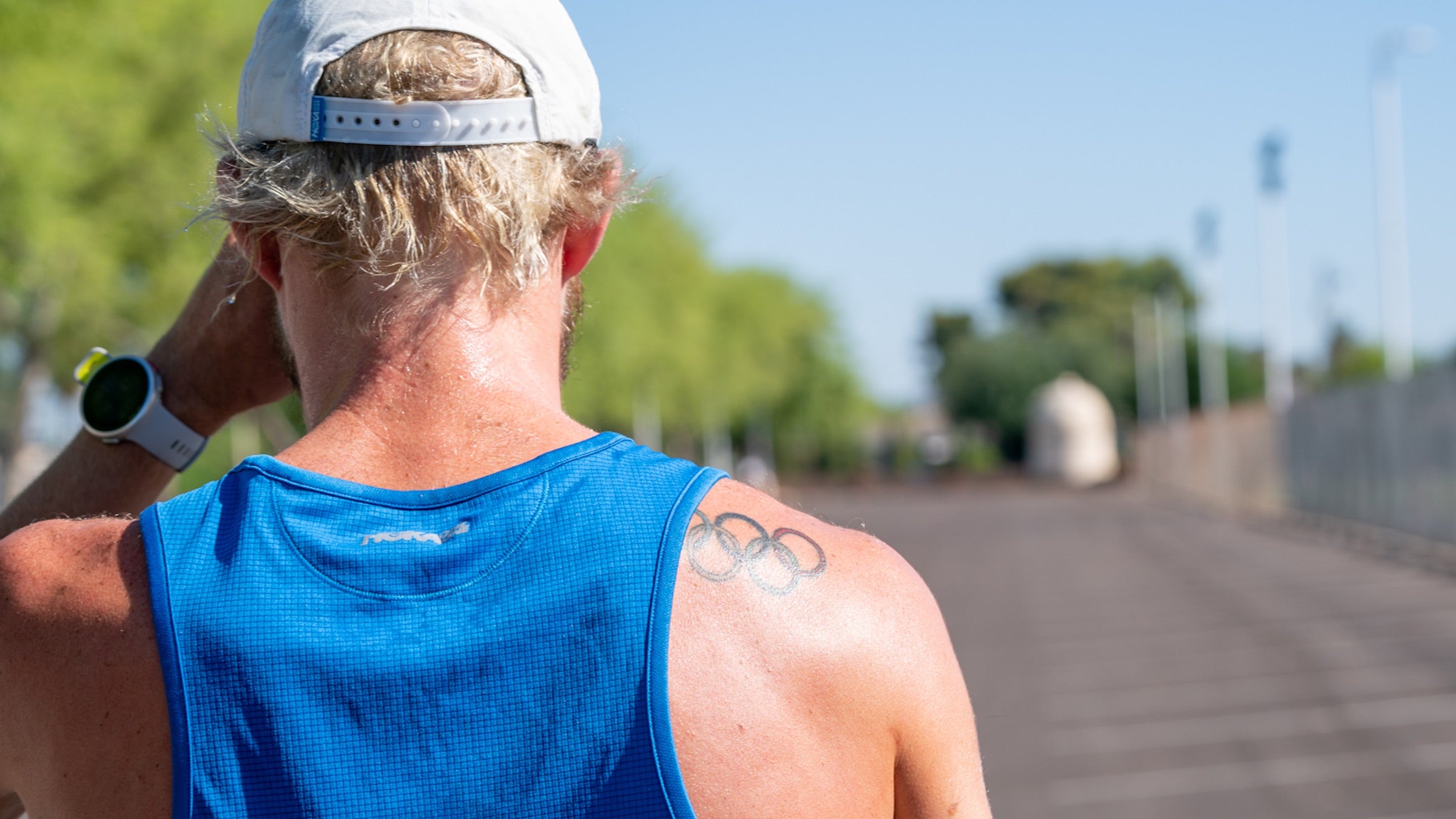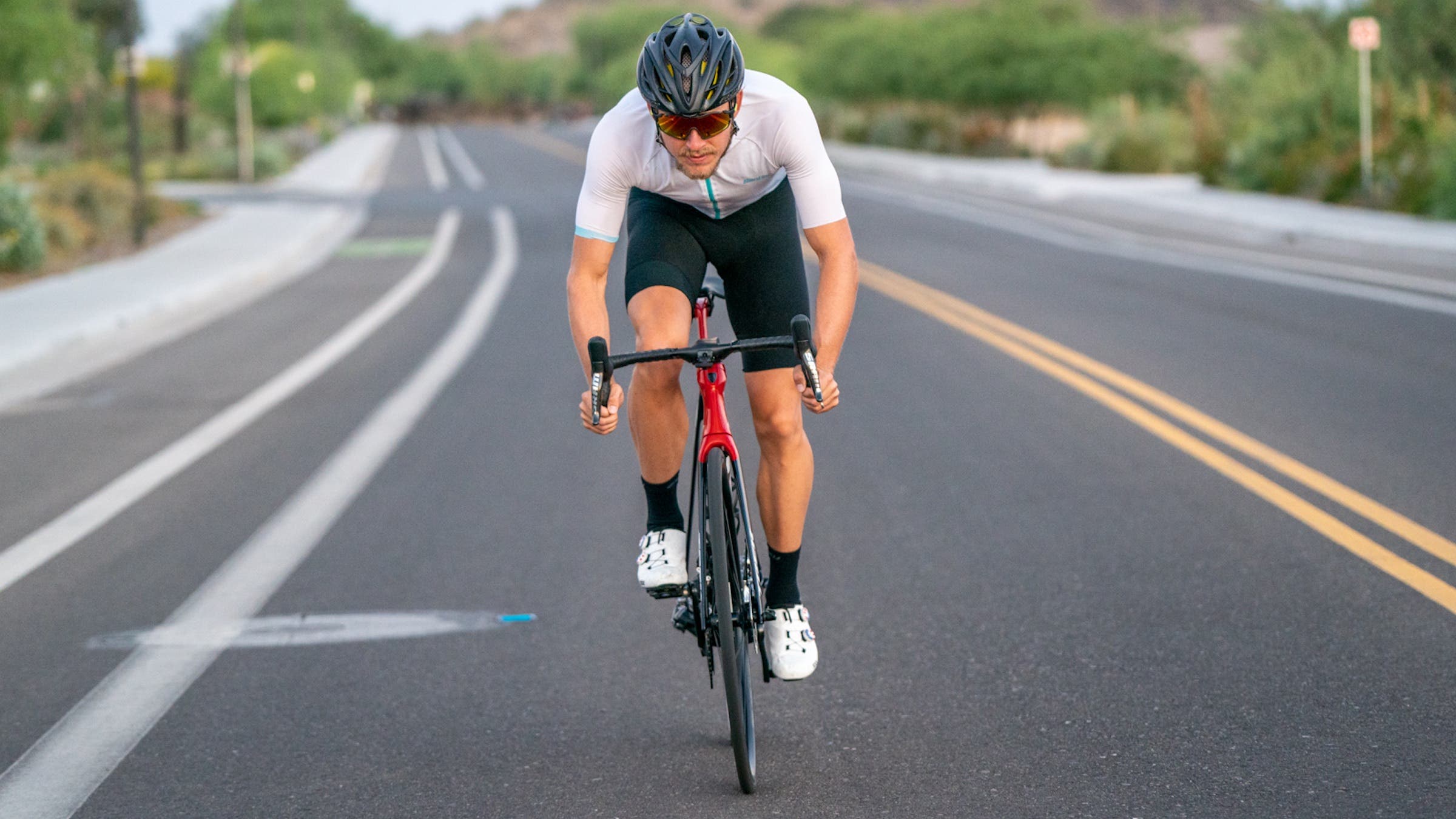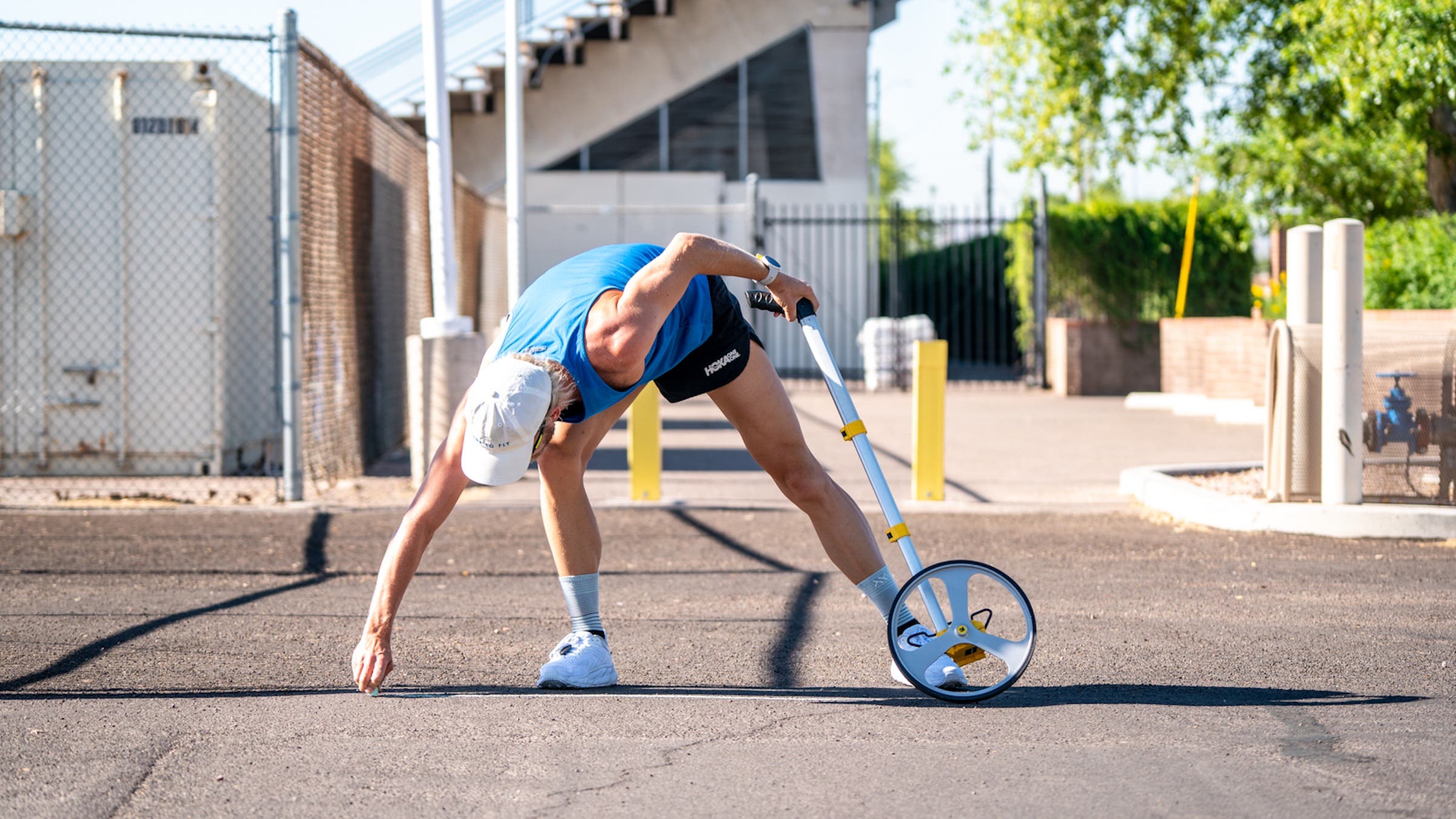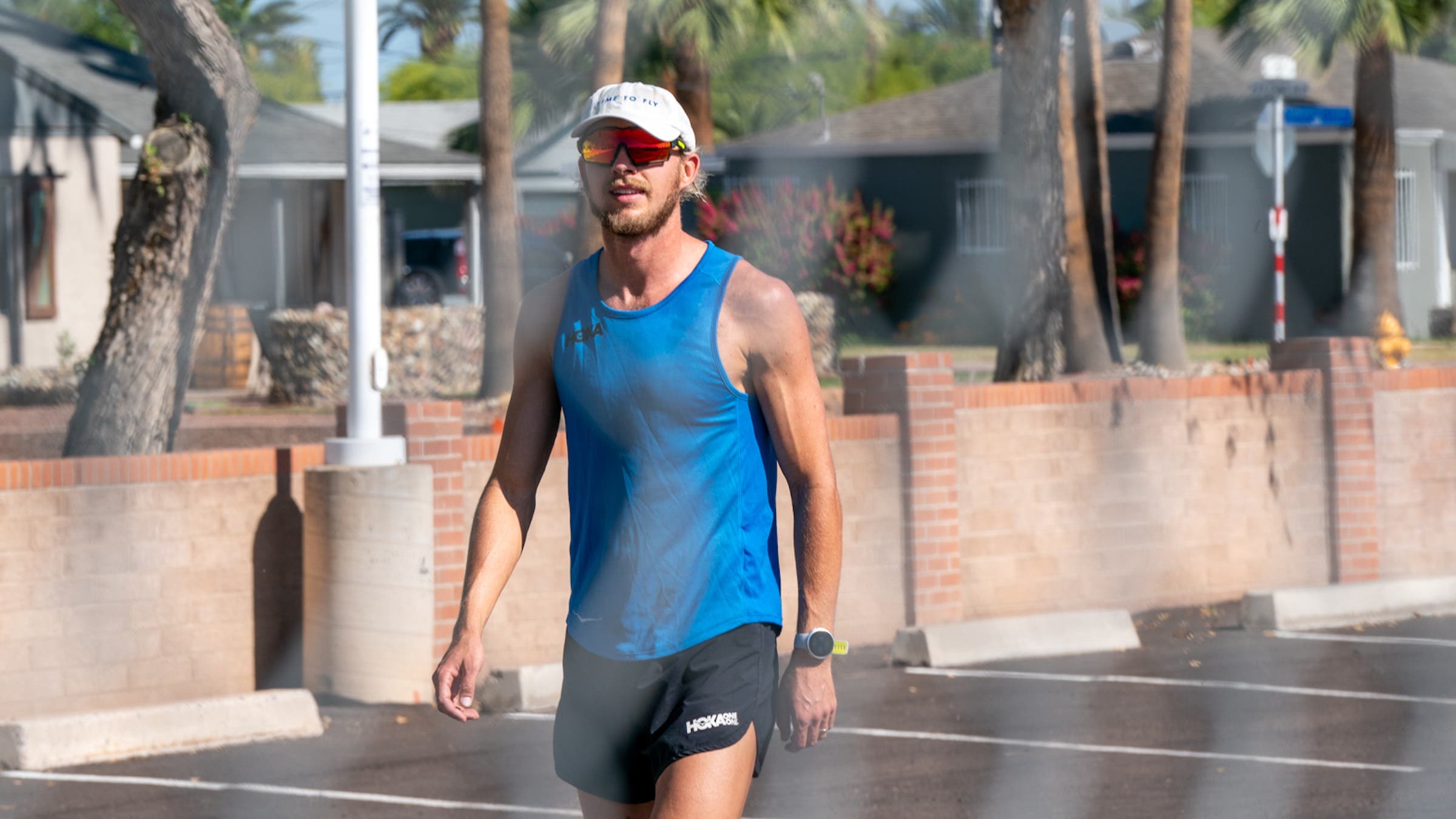Can Ben Kanute Go from 70.3 Success to a Mixed Relay Olympic Spot?

Ben Kanute hopes to make his second Olympic team—but this time as a relay specialist. (Photo: Kenny Withrow)
With the top Olympic athletes gearing up for the re-start of the World Triathlon races and the final automatic Olympic qualifying event for Americans this weekend in Yokohama, former USAT president Barry Siff gives us his take at one of the more dramatic attempts to make the team.
Plus, photographer Kenny Withrow followed along with Ben Kanute for one of his last training sessions in Arizona before he headed to Japan.
As I was perusing the start list for the very important upcoming World Triathlon Championship Series race in Yokohama on May 15, I was surprised (to say the least) to see the name Ben Kanute. I knew he had raced St. George 70.3 on May 1, had thought he had perhaps fully transitioned to long-distance racing, and quite honestly thought he had left the World Triathlon world. After all, the 2016 Olympian hadn’t been named to the USA Triathlon (USAT) National Team this year.
Was I wrong!
Turns out after the 2016 Rio Olympics, where Kanute finished 29th, he set two major goals for himself: 1. Win an Ironman 70.3 World Championship, and 2. Win a medal in Tokyo in the inaugural mixed relay event. Those two goals have remained in place for the past five years, and Kanute and his coach Jim Vance clearly see Yokohama as the key lynchpin in this dream and maybe his last chance to be named to the U.S. Olympic team. But it won’t be easy, especially coming off long-course racing success.
RELATED: Tokyo Olympics: Here How U.S. Triathletes Will Qualify

Ben Kanute was arguably among the very first true mixed relay superstars. A consistent front-pack swimmer with high-level cycling power, he is notorious for being in the breakaway pack in almost any distance triathlon. Specifically in the very short relay format, his swim-bike strength is overly significant—given the 2K run. Though he may not be nearly as fleet of feet as a Brownlee, Luis, or Mola, the heart and grit can carry him through that short a foot race.
But without racing on the World Triathlon circuit in recent years, having turned to the half-distance, making the Olympic team could be an uphill battle. My big first question was: How the heck did Kanute get onto the Yokohama start list? (For those not in the know, getting a spot on a start list requires a certain amount of points on the world circuit in the first place and every country is only allowed so many spots. It can be difficult to even get to a start—which is a necessity in order to prove your talent or ability on the course!) After all, it has been clear for the past four years who the U.S. men are who fighting for what will be either two or, hopefully, three Olympic spots: Matt McElroy, Morgan Pearson, Eli Heming, Kevin McDowell, Seth Rider, and Tony Smoragiewicz. These are the names I expected to see.
Then, Rider and Smoragiewicz made late decisions not to race in Yokohama, and it opened the way for a waitlisted Kanute.

The “easiest” way—i.e. it’s not easy, but it’s the clearest and simplest way—to gain a coveted Team USA Olympic spot would be by finishing on the podium in Yokohama (top three), or being the top American male in the top eight. To do this, there is only one strategy Kanute can employ in the race: a strong early breakaway with the likes of Brownlee, Luis, van Riel, a Norwegian or two, and maybe a few other uber swim-bike stars. Yokohama is an Olympic-distance race, culminating with a 10K run. Most would say Kanute needs a lead of 70-80 seconds over Pearson and McElroy, who are also fighting for that top U.S. finish and automatic Olympic spot.
Anyone who doesn’t lock down an automatic spot, is then hoping to be selected at the discretion of the USAT selection committee. Short of finishing in the top eight overall, Kanute is clearly trying to impress those selectors, who, more than likely, will be awarding one, two, or even possibly all three discretionary spots (if no man qualifies automatically this weekend). They will be taking into account the best chances at medals, strong performances, and the mixed relay podium. With Pearson and McElroy both demonstrating stronger individual World Triathlon credentials in the last two years, it’s that mixed relay spot that Kanute is truly aiming for. His coach is unequivocal in feeling that Kanute deserves that relay start: “Ben is one of the best mixed relay athletes in the world. When he’s been on a USA mixed relay team, they have not missed a podium since 2015.”
So, will making a bid solely for a relay spot work? Maybe.

There’s one more thing working against him, though. In USAT’s qualification criteria, it is made clear that when considering people for the mixed relay “all emphasis is placed upon sprint and relay events.” With Yokohama as an Olympic-distance individual event, there’s not much chance for Kanute to show off his relay or sprint abilities—even if he manages to finish as the top American. Team Kanute will be hoping to point to previous performances, like the super short Super League events of 2019 and his second place at the 2019 Chengdu Sprint World Cup.
Coach Vance says Kanute is “the strongest I’ve ever seen him,” has been working with renowned running coach Bobby McGee to fine-tune his sprint run speed, and has been working with strength and conditioning coach Matt Pendola on mechanics—all with the goal of this coming together in a last attempt this weekend to prove he deserves an Olympic spot on the relay team.
But then again, if everything hinges on proving his sprint speed in Japan on Saturday, the big question I have is why the heck did he race St. George 70.3, a notoriously hot and hilly race, just two weeks before this pivotal Yokohama opportunity? Gotta be honest, the answer isn’t clear to me. Nor is it clear why he didn’t pull out on the St. George run when any chance of top 10 was gone. The race had to be a disappointment; however, Vance remains optimistic. The plan was to rest more than usual going into the May 15 race and take solace in the fact that “it isn’t gonna be a 56-mile solo bike ride with hills.”
Whatever happens, I can’t wait to watch the drama and wish all five fantastic American men great races!
Barry Siff will be watching the race, May 15, at 1 p.m. local time in Yokohama, on TriathlonLive.
RELATED: Every Question You Have About the Tokyo Olympics Triathlon, Answered